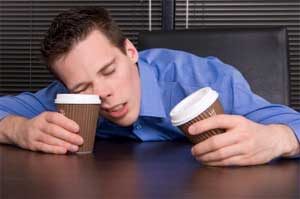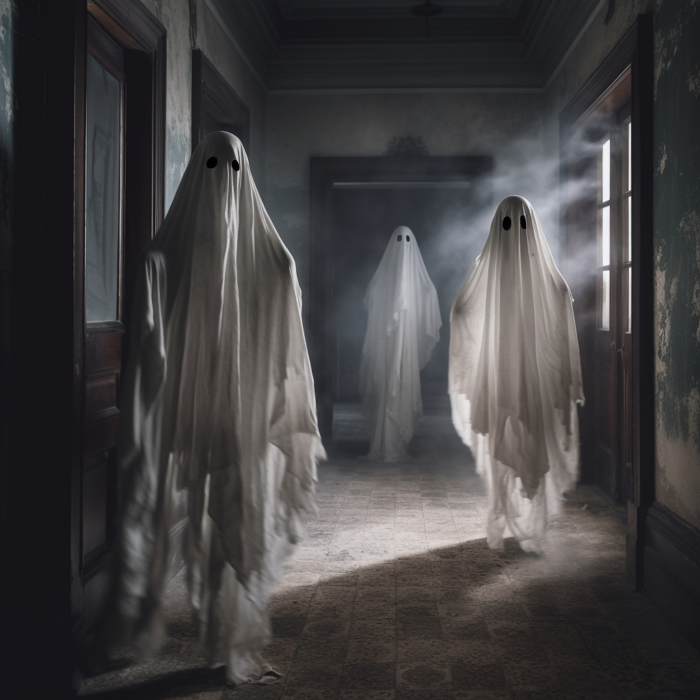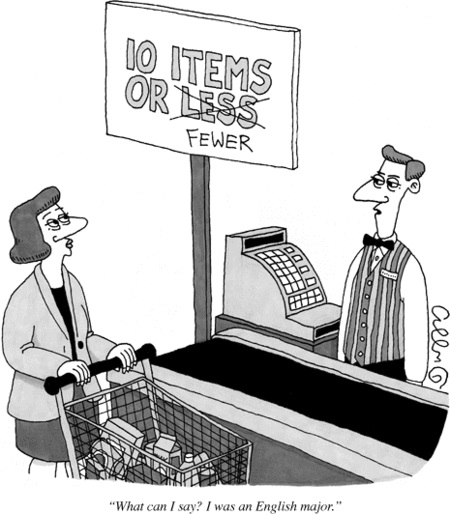Jun
27
2017
 Sleep is essential and yet many people get insufficient sleep or have poor sleep quality. A recent review gives the following stats:
Sleep is essential and yet many people get insufficient sleep or have poor sleep quality. A recent review gives the following stats:
Population studies show that sleep deprivation and disorders affect many more people worldwide than had been previously thought. A recent study found 20% of 25–45 year-olds slept “90 minutes less than they needed to be in good shape”. Insomnia is the most common specific sleep disorder, with ‘some insomnia problems over the past year’ reported by approximately 30% of adults and chronic insomnia by approximately 10%. Prevalence of obstructive sleep apnoea, characterized by respiratory difficulties during sleep, is also very high with estimates of 9–21% in women and 24–31% in men.
The CDC considers poor sleep a public health problem. As a practicing physician these statistics also match my experience. Poor sleep is comorbid with many neurological conditions I treat, such as migraine. What I find interesting is how many patients I see who are having frequent migraines, they have fatigue, have difficulty with weight control, and are having difficulty with concentration and short-term memory. Further, when asked they report having terrible sleep, and yet they did not volunteer this information or make any connection to their other symptoms.
What this tells me is that people under-appreciate the importance of sleep and the negative consequences of chronic poor sleep. In fact, many patients are initially dismissive of the idea that poor sleep could be a major explanation for their symptoms. They are used to having poor sleep and that is now their normal.
Continue Reading »
Jun
28
2016
 Caffeine is a drug. I think most people know that, but perhaps they don’t really think about it. Caffeine is essentially a legal unregulated drug (much like alcohol and nicotine, but with no age restriction).
Caffeine is a drug. I think most people know that, but perhaps they don’t really think about it. Caffeine is essentially a legal unregulated drug (much like alcohol and nicotine, but with no age restriction).
Coffee, tea, cola, and chocolate are all common sources of caffeine. Many people use this drug on a regular basis, often daily. They become addicted to this drug, and suffer withdrawal symptoms when they don’t take their regular dose. If caffeine were not readily available in commonly consumed food and drink, and say it were being introduced as a new drug, I wonder how it would be viewed and regulated.
A new study looks at the effects of caffeine on mental performance in those who are sleep deprived (a common application). Caffeine is a stimulant, it therefore does increase alertness and mental function. However, like all stimulants, its effects are a double-edged sword.
The study looked involved only 48 subjects, and had them restricted to 5 hours of sleep per night. Half were then given caffeine at 8 am and 12 noon while the other half were given placebos. For the first three days those taking caffeine performed better on mental tasks than those getting placebo. On days four and five, however, there was no difference.
Continue Reading »
Sep
01
2015
 Getting sufficient sleep is very important to overall health. It is an often overlooked aspect of health. I frequently have patients with multiple complaints who inform me, only when asked, that they have terrible sleep. They did not make the connection between their sleep and their symptoms, however.
Getting sufficient sleep is very important to overall health. It is an often overlooked aspect of health. I frequently have patients with multiple complaints who inform me, only when asked, that they have terrible sleep. They did not make the connection between their sleep and their symptoms, however.
Good sleep has been tied to longevity. A review of studies found that getting <6 hours of sleep on average per night was associated with a 12% increased risk of death. The same review found that getting >9 hours of sleep a night was associated with a 30% increased risk of death.
It is difficult to determine cause and effects with these studies. Sleep may simply be a marker for other health variables. People who sleep over 9 hours, for example, may do so because they are unhealthy for other reasons.
Even still, it is plausible that lack of sleep is stressful to the system, especially brain function, and therefore sleep disorders should be identified and treated. Don’t overlook the importance of good sleep.
Continue Reading »
Jul
24
2014
When someone looks at me and earnestly says, “I know what I saw,” I am fond of replying, “No you don’t.” You have a distorted and constructed memory of a distorted and constructed perception, both of which are subservient to whatever narrative your brain is operating under.
One of the more dramatic aspects of memory distortion is false memories. These can be completely fabricated memories that are indistinguishable from genuine memories. False memories can involve small details, or entire scenarios. One way to fabricate false memories is with suggestion – just suggesting to someone a detail of an experience they had may cause them to incorporate that detail into their memory of the experience.
The apparent reason for this is that our brains appear to favor consistency over accuracy. Memories are updated to bring them into line with our current knowledge. If we are told that the person was wearing a blue jacket, then our memory might change so that it is consistent with what we now believe to be true.
Continue Reading »
Jun
11
2012
Recent evidence suggests there is a link between sleep quality and weight control – poor sleep correlates with risk of obesity. The possible causal connection goes both ways. Obesity increases the risk for sleep apnea and other conditions that may interfere with sleep, such as back pain. Recent studies also suggest that sleep deprivation increases appetite and decreases energy ependiture. A recent review summarizes the evidence:
On this basis, the present review examines the role of sleepcurtailment in the metabolic and endocrine alterations, including decreased glucose tolerance and insulin sensitivity, increased evening concentrations of cortisol, increased levels of ghrelin, decreased levels of leptin and increased hunger and appetite. It will be discussed how sleeprestriction may lead to increase in food intake and result in greater fatigue, which may favour decreased energy expenditure.
All of the hormonal factors listed above would tend to increase hunger and fat storage and decrease satiety. Fatigue also decreases energy output. Resulting weight gain may further worsen sleep, leading to a vicious cycle.
A new study adds another element to the mix. Researchers looked at 23 healthy subjects over two sessions, one with normal sleep and one with sleep deprivation. They then exposed them to various food choices while in an fMRI scanner. They found that the sleep deprived subjects had decreased activity in their frontal lobes while making food choices.
Continue Reading »
Jul
11
2011
Recently I received the following e-mail:
Thank you so much for your show. The other night your podcast saved me from a night full of stress and fear. I woke up in the middle of the night after a nightmare not being able to move and started hearing voices. My eyes were wide open, I could see that everything was normal but kept hearing a voices asking me to go to bible studies. After five minutes of freaking out I remembered sleep paralysis stories from you show and realized what was happening to me. I rode the strange voices out for an hour just realizing my mind misfiring and not having a spiritual awakening.
I have heard similar stories from other readers/listeners and also my patients. I have also had similar experiences myself (always when sleep-deprived). They can be quite frightening and unpleasant. A typical episode of sleep paralysis, or hypnagogic (when falling asleep) / hypnapompic (when waking up) hallucinations includes the feeling of being paralyzed combined with a sense that there is a malevolent presence in the room. Often there is also the sense of pressure on the chest, as if it is difficult to breathe or even that something is sitting on your chest. There may also be auditory and visual hallucinations to complete the package. The situation is scary enough, but there also appears to be an element of spontaneous terror as well.
Continue Reading »
Nov
14
2023
 What is “natural” for humans? It’s often hard to say, and in my opinion this is a highly overused concept. Primarily this is because humans are adaptable – we adapt to our environment, our situation, and our culture. So it is “natural” for us not to have a natural state.
What is “natural” for humans? It’s often hard to say, and in my opinion this is a highly overused concept. Primarily this is because humans are adaptable – we adapt to our environment, our situation, and our culture. So it is “natural” for us not to have a natural state.
But this does not mean there are no insights to be gained by considering the evolutionary milieu in which our ancestors spent the vast majority of their existence. By rapidly changing our environment we may be pushing the limits of our adaptability. We also need to consider the difference between surviving and thriving. We may survive in the world we have created for ourselves, but pay some price. For those of us living in industrialized societies, it’s also difficult to appreciate how different our lives are from the vast majority of human history and societies. What is now “normal” for us is a recent anomaly.
We can apply this line of thinking to many aspects of our lives, but I want to consider childcare. A recent study looking at Mbendjele BaYaka Hunter-Gatherers in the Republic of Congo found a number of interesting thing regarding childcare. Young children received physical contact for the majority of their day. Overall they had near constant attention from a caretaker. About half of this attention came from someone other than the child’s mother or parents. Children benefitted form a network of caregivers of 10 or more people, and occasionally as many as 20 or more. Older children, teenagers, and adult relatives all contributed to childcare. These networks potentially have a number of implications.
Continue Reading »
Oct
31
2023
 It’s Halloween, so there are a lot of fluff pieces about ghosts and similar phenomena circulating in the media. There are some good skeptical pieces as well, which is always nice to see. For this piece I did not want to frame the headline as a question, which I think is gratuitous, especially when my regular readers know what answer I am going to give. The best current scientific evidence has a solid answer to this question – ghosts are not a real scientific phenomenon.
It’s Halloween, so there are a lot of fluff pieces about ghosts and similar phenomena circulating in the media. There are some good skeptical pieces as well, which is always nice to see. For this piece I did not want to frame the headline as a question, which I think is gratuitous, especially when my regular readers know what answer I am going to give. The best current scientific evidence has a solid answer to this question – ghosts are not a real scientific phenomenon.
For most scientists the story pretty much ends there. Spending any more serious time on the issue is a waste, even an academic embarrassment. But for a scientific skeptic there are several real and interesting questions. Why do so many people believe in ghosts? What naturalistic phenomena are being mistaken for ghostly phenomena? What specific errors in critical thinking lead to the misinterpretation of experiences as evidence for ghosts? Is what ghost-hunters are doing science, and if not, why not?
The first question is mostly sociological. A recent survey finds that 41% of Americans believe in ghosts, and 20% believe they have had an encounter with a ghost. We know that there are some personality traits associated with belief in ghosts. Of the big five, openness to experience and sensation is the biggest predictor. Also, intuitive thinking style rather than analytical is associated with a greater belief in the paranormal in general, including ghosts.
The relationship between religious belief and paranormal belief, including ghosts, is complicated. About half of studies show the two go together, while the rest show that being religous reduces the chance of believing in the paranormal. It likely depends on the religion, the paranormal belief, and how questions are asked. Some religious preach that certain paranormal beliefs are evil, therefore creating a stigma against them.
Continue Reading »
Apr
03
2023
 On the SGU this week we interviewed Blake Lemoine, the ex-Google employee who believes that Google’s LaMDA may be sentient, based on his interactions with it. This was a fascinating discussion, and even though I think we did a pretty deep dive in the time we had, it also felt like we were just scratching the surface of the complex topic. I want to summarize the topic here, give the reasons I don’t agree with Blake, and add some further analysis.
On the SGU this week we interviewed Blake Lemoine, the ex-Google employee who believes that Google’s LaMDA may be sentient, based on his interactions with it. This was a fascinating discussion, and even though I think we did a pretty deep dive in the time we had, it also felt like we were just scratching the surface of the complex topic. I want to summarize the topic here, give the reasons I don’t agree with Blake, and add some further analysis.
First, let’s define some terms. Intelligence is essentially the ability to know and process information, often in the context of adapting one’s responses to that information. A calculator, therefore, displays a type of intelligence. Sapience is deeper, implying understanding, perspective, insight, and wisdom. Sentience is the subjective experience of one’s existence, the ability to feel. And consciousness is the ability to be awake, to receive and process input and generate output, and to have some level of control over that process. Consciousness implies spontaneous internal mental activity, not just reactive.
These concepts are a bit fuzzy, they overlap and interact with each other, and we don’t really understand them fully phenomenologically, which is part of the problem of talking about whether or not something is sentient. But that doesn’t mean that they are meaningless concepts. There is clearly something going on in a human brain that is not going on in a calculator. Even if we consider a supercomputer with the processing power of a human brain, able to run complex simulations and other applications – I don’t think there is a serious argument to be made that it is sentient. It is not experiencing its own existence. It does not have feelings or emotions.
The question at hand is this – how do we know if something that displays intelligent behavior also is sentient? The problem is that sentience, by definition, is a subject experience. I know that I am sentient because of my own experience. But how do I know that any other living human being is also sentient?
Continue Reading »
Jan
23
2023
 After publishing thousands of blog posts I have found that sometimes the most trivial topics garner the most debate, both in amount and intensity. I wouldn’t call it a rule, just a casual observation, likely rife with confirmation bias. But at the very least I am surprised sometimes by how vehemently people will argue about points that are ultimately subjective and of little importance.
After publishing thousands of blog posts I have found that sometimes the most trivial topics garner the most debate, both in amount and intensity. I wouldn’t call it a rule, just a casual observation, likely rife with confirmation bias. But at the very least I am surprised sometimes by how vehemently people will argue about points that are ultimately subjective and of little importance.
Grammatical and semantic arguments tend to fall into that category. My speculation is that this is partly due to the fact that people’s brains literally get wired from exposure to language so that words and phrases just sound right or sound wrong. When someone else says or writes something that just feels wrong it can be extremely irritating. This feeling, in turn, leads us to act as if certain ways of saying things are inherently correct or incorrect, or at least “proper”. As might be expected, the internet is fertile ground for people to vent their grammatical peeves. This has also lead to a backlash against the “grammar nazis”, often in the context that whatever their linguistic peeve, it is not actually “correct” by any objective criteria.
I find this topic fascinating, primarily because it challenges the logic and reasoning we use to determine which linguistic forms are “proper and correct”. Language is endlessly complex and fascinating. It is an organic evolving thing, and we have a history of how it has changed over thousands of years.
The latest example I encountered of the “grammar wars” is the question of when it is proper to use “less” vs “fewer”. It came up because on the latest SGU episode Jay said “less hours of sleep” and I corrected him to say “fewer hours of sleep”. I did this mainly for the entertainment value, but I think the point is valid. My correction sparked some e-mail backlash, often pointing to references arguing that “less” is just fine in such usage. However I found some of the arguments used to be unsatisfying, and even hypocritical. Here is a quick overview of the discussion.
Continue Reading »
 Sleep is essential and yet many people get insufficient sleep or have poor sleep quality. A recent review gives the following stats:
Sleep is essential and yet many people get insufficient sleep or have poor sleep quality. A recent review gives the following stats:
 Caffeine is a drug. I think most people know that, but perhaps they don’t really think about it. Caffeine is essentially a legal unregulated drug (much like alcohol and nicotine, but with no age restriction).
Caffeine is a drug. I think most people know that, but perhaps they don’t really think about it. Caffeine is essentially a legal unregulated drug (much like alcohol and nicotine, but with no age restriction).
 What is “natural” for humans? It’s often hard to say, and in my opinion this is a highly overused concept. Primarily this is because humans are adaptable – we adapt to our environment, our situation, and our culture. So it is “natural” for us not to have a natural state.
What is “natural” for humans? It’s often hard to say, and in my opinion this is a highly overused concept. Primarily this is because humans are adaptable – we adapt to our environment, our situation, and our culture. So it is “natural” for us not to have a natural state. It’s Halloween, so there are a lot of fluff pieces about ghosts and similar phenomena circulating in the media. There are some
It’s Halloween, so there are a lot of fluff pieces about ghosts and similar phenomena circulating in the media. There are some  On
On  After publishing thousands of blog posts I have found that sometimes the most trivial topics garner the most debate, both in amount and intensity. I wouldn’t call it a rule, just a casual observation, likely rife with confirmation bias. But at the very least I am surprised sometimes by how vehemently people will argue about points that are ultimately subjective and of little importance.
After publishing thousands of blog posts I have found that sometimes the most trivial topics garner the most debate, both in amount and intensity. I wouldn’t call it a rule, just a casual observation, likely rife with confirmation bias. But at the very least I am surprised sometimes by how vehemently people will argue about points that are ultimately subjective and of little importance.




